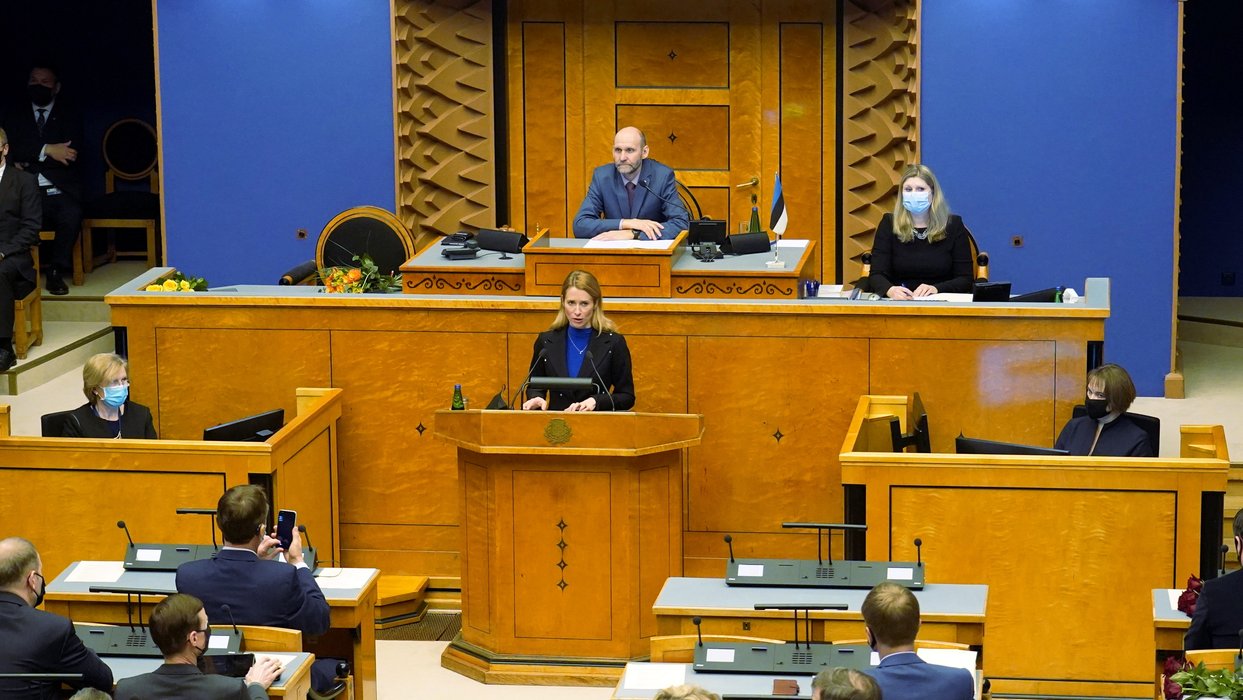
Association
The need for a rights-based recovery: CSOs sound the alarm on racism, migration and child rights
The Estonia Human Rights Centre has expressed the need for a rights-based recovery approach to COVID-19, which has exposed gaps in respect of fundamental rights to health, education, employment and social protection. The organisation states that it is concerned about the rise in hate crimes, particularly against immigrants and Roma people, and the lack of existing legislation in Estonia to assist victims.
“One of the main concerns in Europe in 2020 was the rise in hate crimes. We have also noticed this in our work. The Human Rights Centre has been increasingly approached by people who have been attacked or harassed on the streets. Unfortunately, the lack of legislation in Estonia makes it difficult to notice and help victims. We should be a country where everyone feels safe. The first step should be to finally adopt a framework decision to cover hate crime as a specific type of crime.”- Egert Rünne, the director of the EHRC.
The Human Rights Centre also underlines other key issues, including the need to respect fundamental rights of migrants, refugees and asylum seekers, including at borders, and the rights of children who have been disproportionately impacted during the pandemic.
Support for LGBTI rights grows exponentially amongst public
The Estonian Human Rights Centre reported a marked increase in support for LGBTI rights in Estonia, based on a recent public opinion survey conducted by Turu-uuringute AS. The study is the largest on LGBTI rights in Estonia in 2021. The results show that 64 per cent of Estonians supported the Registered Partnership Act, which is 15 per cent higher than more than two years ago. There has also been a 12 per cent increase in Estonians’ attitudes to acceptance of homosexuality, with 53 per cent considering homosexuality to be completely or somewhat acceptable. Furthermore, 71 per cent of Estonians believe that LGBTI people should be protected by law from discrimination in the fields of work, education, healthcare and access to goods and services.
“The survey shows that the majority of the Estonian people are friendly and stand for a society that respects all human rights. The intolerant are vocal, but they are in a clear minority,” - Egert Rünne, director of the Human Rights Centre.
The survey results coincide with the Greens’ presentation of a petition to the Riigikogu (parliament of Estonia) calling for an amendment to the Family Law Act which would define marriage as a union of two adults, regardless of gender. The petition has been signed by over 35,800 people. As previously reported on the Monitor, the new centre-left government has publicly voiced their support for LGBTI persons. The test remains as to whether this support will convert into real legislative change.
Peaceful Assembly
Disproportionate policing on protests against COVID-19 regulations
On 11th April 2021, around 100 protesters gathered in Tallinn's Vabaduse väljak (Freedom Square) to protest against the further tightening of COVID-19 restrictions. Policing of the protest was criticised, with a disproportionate number of police and armed police deployed to curb the protest, resulting in several arrests and fines. Whilst authorities argued that the protest was a “threat to the constitutional order” and violated social distancing restrictions, opposition parties have been quick to criticise, with Chairman of the Conservative People’s Party, Martin Helme, comparing the means of breaking up the protest to those used in Belarus and the Russian Federation. The policing of the protest perhaps begs the need for greater guidance on pandemic-safe protesting so that the right to peaceful assembly is not curtailed entirely, as has been the case in some European countries during the pandemic.
Tighter legislation obliges the public to abide by COVID-19 regulations
In May 2021, the Riigikogu passed a bill to “simplify and speed up the involvement of law enforcement agencies” in a move to further tighten compliance with COVID-19 regulations. The bill impacts restrictions on movement, organisation of events, face mask wearing and increases fines for violations by up to 400 Euros for individuals and 13,000 Euros for organisations. Regulations also include provisions for authorities to impose the temporary closure of institutions or to restrict their activities, meetings or events. Considering the recent heavy-handed policing of those who fail to abide by COVID-19 restrictions, the bill calls into question how far the government will go in restricting civic freedoms, including the right to peaceful assembly.
Expression
The Minister of Culture refused to recognise the Union of Journalists as a creative union
In October last year, the Estonian Union of Journalists applied to the Ministry of Culture for recognition as a creative union. In June 2021, the Minister of Culture, Anneli Ott (Centre Party), rejected the application on the grounds that the press does not perform an artistic function and cannot be equated with literature. The Union of Journalists argues that the main feature of journalistic work is the existence of creative text published on various technical platforms, including use of audio-visual art as a creative field, but Minister Ott does not share the view that any written text is literature, regardless of the form. In the opinion of the Board of the Union of Journalists, the Ministry of Culture’s move to reject the application is based on the fear of new expenses, rather than the reasoning that suggests the press is not creative.